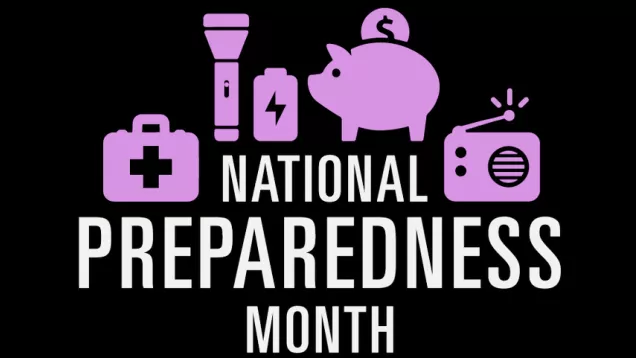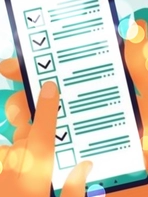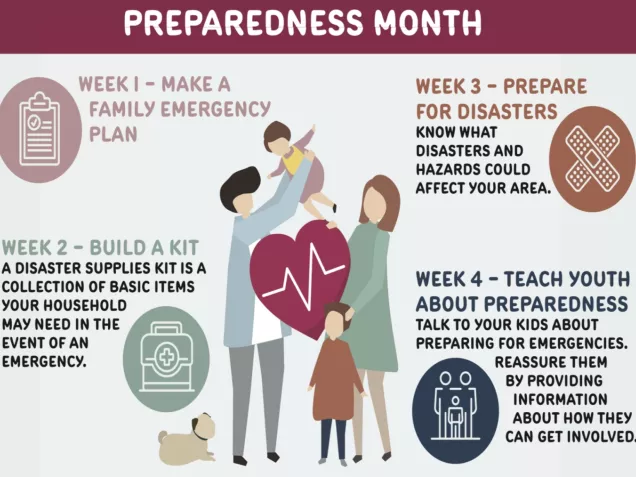Posted on 09/02/2025

The 2025 FEMA Theme is: Preparedness Starts at Home
Do you have an emergency plan already?
This might be a good time to check it for needed updates.
No plan, yet?
September is the annual National Preparedness Month, so what better time? (OR, any time you're reading this!)
Your family may not be together when a disaster strikes.
Know how you’ll contact one another and reconnect if separated.
Establish a family meeting place that’s familiar and easy to find.
A meeting place may need to change based on which possible Los Angeles area disaster is occurring, and where it's focused.
STEP 1: Put a household plan together; discuss these questions
How will I receive emergency alerts and warnings?
Register for NotifyLA to stay up to date with emergency information from the City of Los Angeles
Visit Ready LA County's Emergency Notifications cross-agency directory to register for alerting systems that operate where you work, attend school, or regularly visit.
What is my shelter plan?
What is my evacuation route?
Do I need to update my emergency preparedness kit?
STEP 2: Consider specific needs in your household
As you prepare your plan, tailor your steps and supplies to your specific daily-living needs and responsibilities. Discuss your unique situations and how people in your circle of contacts can assist each other with communication, care of children, business, pets, or specific needs like operating medical equipment. Create your own personal network for specific areas where you need assistance. Keep in mind some these factors when developing your plan:

- Different ages of members within your household
- Responsibilities for assisting others
- Locations frequented
- Dietary and/or medical needs (including prescriptions and equipment)
- Disabilities or access and functional needs (including devices and equipment)
- Cultural and religious considerations
- Pets or service animals
- Pet Emergency Kit Checklist
- Households with school-aged children
See also, LA City's Emergency Preparedness Quick Reference Guide.
STEP 3: Fill out a Family Emergency Plan
Download and fill out a family emergency plan or use it as a guide to create your own.
STEP 4: Practice your plan with your family/household
There are many easily accessible resources for LA City residents, businesses, and visitors. LA's Emergency Management Department offers the following:
Register for NotifyLA local emergency alerts.
Find many Ready Your LA Neighborhood (RYLAN) preparedness tools and videos for home and family.
Help prepare your neighbors. Request a RYLAN community workshop from EMD.
Make your workplace and employees disaster- and recovery-ready with easy-to-use Ready Your LA Business workbooks.
Follow LA City Emergency Management (@ReadyLA) on social media – “X”, Facebook, Instagram, Threads, and Nextdoor.
As each widespread local emergency unfolds, check for EMD’s latest info at: Emergency.LACity.gov

Additional Resources:
Family Communication Plan Fillable Card (PDF)
Emergency Plan for Families
Emergency Plan for Commuters (PDF)
Pet Owners (PDF)
Family Emergency Communication Planning Document (PDF)
Family Emergency Communication Plan Wallet Cards (PDF)
Know Your Alerts and Warnings (PDF)
Protect Critical Documents and Valuables (PDF)
Document and Insure Your Property (PDF)
Emergency Financial First Aid Kit (PDF)
Consumer Financial Protection Bureau Disaster Checklist (PDF)